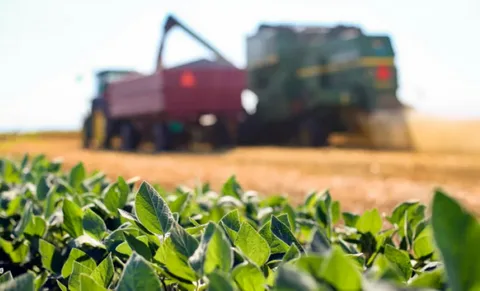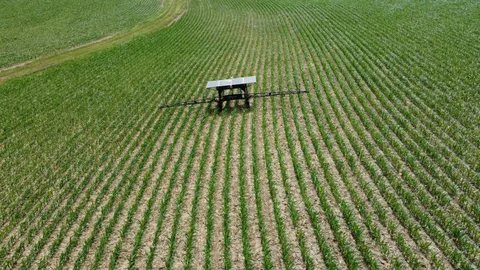How is the Agricultural Education Contest organized?
Contests for agricultural education are designed to provide students with an experience of the agricultural industry and allow them to dive into hands-on learning and practical activities. These contests aim to teach and inspire future generations with real-world abilities that they can apply to farming, agribusiness, as well as environmental sciences. Through different categories, stages, and kinds of competitions, the participants collect experiences that extend beyond the confines of their classroom.
Outline
- What is an Agricultural Education Contest?
- Why Agricultural Education Contests Are Important
- How the Contest is Organized
- Local and National Levels
- Different Types of Categories and Themes
- Who Can Participate?
- What to Expect in an Agricultural Education Contest
- Skills and Knowledge Areas Verified
- Benefits of Participating in Agricultural Education Contests
- Challenges Faced by Contestants
- training Tips for Students
- FAQs
- Conclusion
What is an Agricultural Education Contest?

A contest for agricultural education is a contest that is designed for students who want to learn about farming, agriculture and agribusiness as well as related sciences. Contests like these are typically run by agriculture groups and educational institutions to help students understand the basics of farming in a playful, interactive manner.
Contests in agricultural education typically are focused on topics such as animal science, plant sciences, and the business aspect of farming. Through hands-on tasks as well as written tests and teamwork, students get hands-on experience, which brings their learning to reality.
Why Agricultural Education Contests Are Important
These contests play an important part in helping to educate the next generation. Since fewer people of a younger age are involved in agriculture and farming, such events can help ignite enthusiasm and build essential knowledge. Through participation in these events, students collect a comprehension of the industry’s problems and potential.
Additionally to that, the abilities acquired here aren’t restricted to just agriculture. The majority of these contests will teach critical thinking, problem solving, as well as collaboration. These are important talent for any job direction.
How the Contest is Organized
Contests for agricultural education are held in stages and usually include a sequence of challenges or events. The way they’re normally constructed:
Local and National Levels
- Local Competitions The majority of students start with competitions on a regional or local level. These competitions focus on providing them with an opportunity to test their abilities near to the home of the school district or region.
- National Contests Students who perform well in local competitions could be able to participate at the national level. National competitions are more intense and draw students from across the nation.
Different Types of Categories and Themes
Each contest for agricultural education is broken down into categories that focus on a specific aspect of agriculture.
- Animal Science
- It focuses on genetics, livestock care, as well as veterinary science and the health of animals.
- Animal handling tasks can include feeding as well as finding the different breeds.
- Plant Science
- It covers everything from soil management to crop health.
- It could involve finding out about plant diseases, studying soil samples, as well as assessing the crop’s health.
- Agribusiness
- Students are taught the business aspects of farming, including marketing and budgeting in addition to managing the resources.
- Contests may involve creating business plans or solving challenges with finances that farmers have to confront.
- Environmental Science and Natural Resources
- Sustainability in soil conservation, sustainability, and a deeper understanding of the ecosystems.
- It could be a matter of testing for water as well as wildlife habitat assessment or an analysis of environmental impacts.
- Agricultural Mechanics
- Concentrates on technical and mechanical talent such as together machines for farming, fixing equipment, and transferring tools.
- Competitions can assess students’ abilities to fix a tractor, create a structure, or operate different tools in a safe manner.
Each class tests specific talent in addition to knowledge, allowing an understanding of the agricultural system in general.
Who Can Participate?

Generally, contests for agricultural education are available to college and high school students. However, some contests may even be available for middle-school students at an elementary or middle school level. Schools typically create teams within their agricultural programs, which allows students to work together to prepare for competitions. A lot of institutions also offer Future Farmers of America (FFA) chapters or 4-H clubs that take part in these competitions.
These contests are ideal for those who are interested in:
- Agriculture and farming
- Biology and environmental research
- Management and business
- Environmental sustainability
- Animals and Plants
What to Expect in an Agricultural Education Contest
Contests in agriculture usually consist of an assortment of tests as well as practical challenges and sometimes even projects. What students can be expecting:
- Written Examinations A majority of contests contain an exam that tests the level of understanding the contestant has about the subject.
- tasks that involve hands They are practical tasks where students use the skills they’ve learned. For instance, for an animal science competition, students could be asked to demonstrate their handling knowledge.
- Group projects Certain contests require teams. Teams may be involved in projects such as creating the business plan or even conducting an investigation in the field.
- Judging after completing the tasks, students might be required to explain their process along with their outcome before judges. Judges will look for precision, understanding, and collaboration talent.
Skills and Knowledge Areas Tested
The purpose of contests is to challenge students in areas relevant to the real world of agriculture. Here are a few most commonly used knowledge and subject areas of knowledge:
- Solution-oriented A lot of tasks require the search for solutions to the most common agricultural issues.
- Scientific Knowledge: Students should be familiar with the basics of concepts of biology and chemistry, as well as environmental sciences.
- technical skills Particularly in areas such as agricultural mechanics, students are required to make use of equipment and follow security procedures.
- Teamwork Collaboration with other people is crucial, especially when it comes to group work.
- Communication Students are often required to communicate their outcome in a clear and convincing manner.
Benefits of Participating in Agricultural Education Contests
Contests in agriculture have many benefits for contestants:
- real-world skills from animal handling or environmental protection, the competitions teach students the practical aspects of.
- occupation training employers appreciate the abilities and knowledge gained from these contests.
- Social Networking possibilities Students get to meet fellow participants, mentors and professionals from industry.
- Scholarships Many contests provide scholarships or other prizes to the top performers.
- Recognition The success of these contests is excellent for a curriculum vitae or college applications.
Challenges Faced by Contestants
The agricultural contests can be enjoyable; however, they are also a source of challenges.
- Timing Management Contests can be hectic, and students frequently have to manage their time effectively to finish each task.
- high competition National competitions are extremely competitive and the pressure to perform may be very intense.
- Specialized knowledge Certain topics, like soil science or machine repair, require specific knowledge.
- Physical Requirements Certain tasks, like handling livestock and together equipment, could be physically demanding.
Despite these difficulties, the majority of students find it valuable and enjoyable.
Preparation Tips for Students

The preparation for an agricultural education contest is a long-term commitment and requires enough time. Here are some helpful tips to help students perform their perfect:
- Study the Contest Rules and Layout
- Knowing the rules and formats is vital. Every contest has its own rules and understanding them can help avoid mistakes.
- attention on Hands-On Practice
- The importance of practice is especially when it comes to practical tasks. Farming, volunteering or using the school’s equipment could make a significant impact.
- Attend Practice Sessions
- A lot of schools and FFA chapters provide classes for training. Participating in these training sessions can help students become at ease with their tasks.
- Review Past Contests
- Reviewing the tasks of previous contests can provide students with an idea of what they can anticipate.
- Form a Study Group
- Collaboration with other students is beneficial. It lets students be able to share their knowledge and experience with one another.
- Stay Calm and Sure
- Confidence is crucial in any competition. Learning relaxation techniques will help students remain focused when under pressure.
FAQs
What is the primary goal of contests in agricultural education?
The goal of the contest is to impart important knowledge and knowledge about farming through encounters and contests. These contests allow students to learn more about business, farming, and science in a manner that is enjoyable and practical.
What criteria determines the winners of these contests?
Winners are generally selected by their performance on different tasks, written tests and other projects. The judges look at accuracy, skills, and teamwork based on the competition’s requirements.
Who organizes contests in agricultural education?
The contests are usually organized by agriculture groups, schools, and Future Farmers of America (FFA) chapters. A few of the larger contests are run by national agencies or government agencies. agricultural associations.
What are the advantages of participating?
Participants get practical experience, increase their talent, and can be eligible for awards or scholarships. Students also report that these contests prepare students for careers in agriculture.
Are there age-related restrictions?
The majority of contests are specifically designed for college and high school students, but some permit younger students from middle school to take part in particular events.
What is the length of time these contests typically run?
The duration varies. Local contests can last only a couple of hours, while national competitions can last for several days and have many rounds and events.
Do you require an agricultural background to be able to join?
No! While certain students may have had farm experience, it’s not required. Many contestants participate to gain knowledge about farming, no matter their previous experience.
Do participants get along in teams?
Many contests feature teams where participants collaborate to complete their tasks. Collaboration is a crucial aspect of the learning process.
Conclusion
Contests in agricultural education grant an exciting and real-world educational experience for students who are interested in agriculture. They cover a variety of topics, ranging from animal sciences to business management, and allow students to learn about various aspects of the industry. Through interactive activities and challenging tasks, students procure abilities that can help them in their future career regardless of their different paths that aren’t related to agriculture.
Contests like these are a fantastic opportunity for students to build confidence, develop teamwork, and make connections with other students who share the same passions. If you’re hoping to be an agriculturalist, a scientist, or even a business leader, taking part in an agricultural competition is a fantastic opportunity to begin building your future.
If you’re passionate about science, agriculture, and the environment, think about taking part in an agricultural contest. It’s more than a contest; it’s an opportunity to receive real knowledge and long-lasting abilities.




